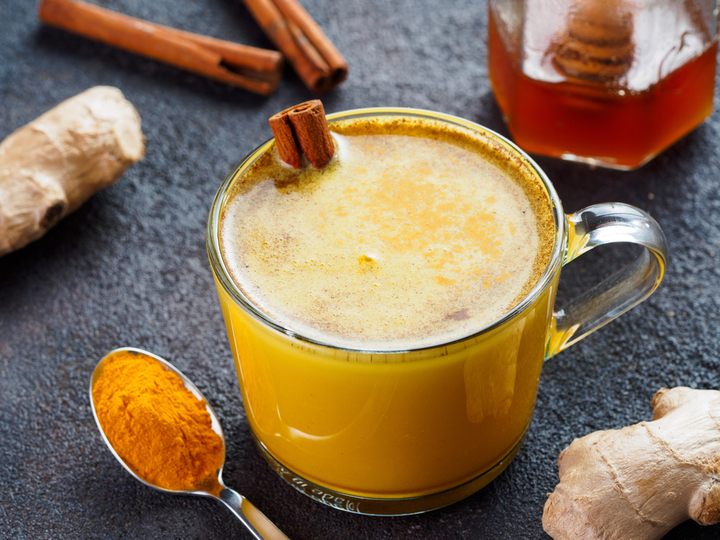Can’t Fall Asleep? These Vitamin Deficiencies Could Be Behind Your Insomnia
Dr Archana Batra shares what food can help you best deal with insomnia while also tackling your vitamin deficiencies.

Mindlessly scrolling Instagram. You keep checking the time to calculate how many hours of rest you have left. You’re tired and your eyes are heavy but you can’t fall asleep — we’ve all been there.
Lack of adequate sleep can make one irritable and also cause a dip in concentration and productivity.
“There are a wide range of factors that can contribute to insomnia and those include diet, stress, lack of exercise and an erratic work schedule as well,” says Dr Archana Batra, a dietitian and certified diabetes educator based in Gurugram, who adds that she sees many patients who complain of insomnia.
Dr Batra also says that not spending enough time in the sunlight can also cause this condition. Additionally, certain medical conditions like hyperthyroidism or an overactive thyroid gland, in which the metabolic rate increases, can also lead to insomnia.
There are certain vitamin deficiencies that can also cause insomnia and Dr Batra lists those out:

1) Vitamin B6:
Vitamin B6 plays a vital role in the production of the hormones serotonin and melatonin – both of which play a keen role in a person getting a good night’s sleep. Dr Batra says, “One of the best sources of Vitamin B is banana and I prescribe one banana a day, along with dairy, eggs, green leafy vegetables, to patients who encounter sleep disorders or sleep irregularities.”
2) Vitamin D:
Also referred to as the ‘sunshine vitamin’, Vitamin D also plays a significant role in sleep. “Research now suggests that a lack of adequate quantity of Vitamin D in the body can lead to sleep disturbances. This vitamin also regulates mood and prevents inflammation in the body. While one natural source of Vitamin D is exposing the body to sunlight, consuming mushrooms, egg yolk and fortified food will also help.
3) Vitamin E:
Vitamin E is known for its benefits for good skin and hair growth. It is also an important nutrient related to our sleep pattern. Vitamin E helps prevent sleep deprivation, memory loss and also prevents cognitive decline in the long run. Dr Batra suggests that consuming sunflower seeds and oil, pumpkin seeds, spinach and red bell peppers can help in getting Vitamin E from natural dietary sources.
4. Vitamin C:
Vitamin C is an antioxidant powerhouse and is often prescribed to maintain good immunity. It is also known to be important for good cardiovascular health, and is necessary for the body to make collagen. Vitamin C’s health-promoting abilities may also extend to sleep and is important to have adequate quantity in one’s body. Citrus fruits are a great source of Vitamin C and one can also consume broccoli, spinach and fruits like kiwi and strawberry to increase Vitamin C levels in the body, says Dr Batra.
Besides the vitamins, Dr Batra says that the Omega 3 fatty acids are also responsible for regulating serotonin levels and thereby help in improving brain function. To boost the Omega 3 levels in the body one can consume chia and flaxseed.
Food to promote good sleep:

1. Turmeric milk:
You can consider having a glass of turmeric milk with a dash of honey before bedtime. This is suggested as an age-old remedy to insomnia.
2. Nuts:
“I also prescribe nuts, seeds and trail mix to those who have insomnia along with a glass of warm milk at night,” says Dr Batra.
3. Banana:
“Incorporating one banana into your daily diet will do you good on multiple fronts,” she adds.
To this, she adds, “Do not consume coffee/caffeine during the latter half of the day. This can hamper your sleep and is not suggested to those who already have difficulty. I would also not recommend consuming green tea at night.”
She continues, “In case one feels the need to have a cup of tea before bedtime, I would suggest incorporating chamomile into the tea, which helps alleviate anxiety and is considered good for sleep.” Most flower-based teas are good and can be consumed at night.
Disclaimer: Please consult your medical practitioner before you decide on any course of action on your diet.
(Edited by Yoshita Rao)
This story made me
- 97
- 121
- 89
- 167
Tell Us More
We bring stories straight from the heart of India, to inspire millions and create a wave of impact. Our positive movement is growing bigger everyday, and we would love for you to join it.
Please contribute whatever you can, every little penny helps our team in bringing you more stories that support dreams and spread hope.



















